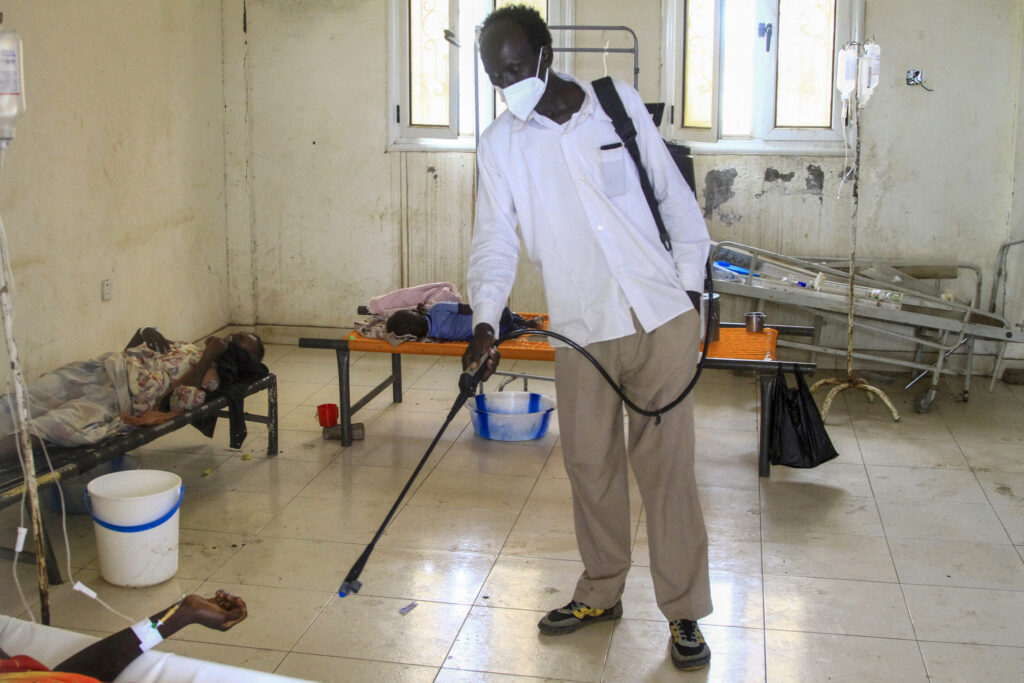Sudan’s Health Minister Haitham Mohamed Ibrahim said in a statement on Sunday that a cholera outbreak in the country has killed about two dozen people and infected hundreds in recent weeks.
Ibrahim’s statement said at least 354 cases of cholera had been confirmed across Sudan in recent days. The World Health Organization (WHO) said as of July 28 this year, 78 cholera deaths had been recorded in Sudan, with 2,400 cases in the same period, according to the Associated Press.
In a video released on Saturday, Ibrahim declared a cholera epidemic in Sudan, according to the AFP news agency.
“Due to the weather conditions and the contamination of drinking water, we are declaring a cholera epidemic,” Ibrahim said in the video, according to AFP.
A man disinfects an isolation centre where cholera patients are being treated, in Wad al-Hil, Kassala state, eastern Sudan, on August 17, 2024. Sudan’s health minister said some 24 people have died in a recent cholera outbreak in the country. Other photos: AFP via Getty Images
According to the WHO, “Cholera is an extremely virulent disease transmitted by ingestion of contaminated food or water.” The disease “can cause severe, acute watery diarrhea that, if left untreated, can be fatal within hours.”
Sudan is already experiencing severe flooding that has forced some 118,000 people to flee, according to the UN migration agency. Ibrahim’s announcement also comes after US officials warned earlier this month that the ongoing war and halting aid could worsen a mass famine in Sudan that could become the worst in a decade.
The Famine Review Committee (FRC) of the Integrated Food Security Classification, the world’s leading body for analysing food crises, has concluded that famine is occurring in Zamzam refugee camp in North Darfur, Sudan, for the third time it has used the classification.
Meanwhile, in Sudan, 16 months of civil war between the Sudanese Armed Forces (SAF) and the Rapid Support Forces (RSF) have had devastating humanitarian consequences, with some 10.7 million people internally displaced and more than 14,000 killed, according to the UN.
International human rights groups say mass rapes and ethnically motivated killings also occurred during the conflict that could be classified as war crimes and crimes against humanity, according to the Associated Press.
“The main causes of hunger in Zamzam refugee camp are conflict and lack of access to humanitarian assistance,” the FRC wrote in its report, with fighting forces blocking food and other humanitarian aid from entering the camp.
“This is an entirely man-made famine,” USAID Administrator Samantha Power said in a statement on August 1.
“The SAF and RSF, supported by external sponsorship, are using hunger as a weapon of war and actively preventing food, including life-saving emergency nutritional supplements, from reaching people in need,” Power added.



